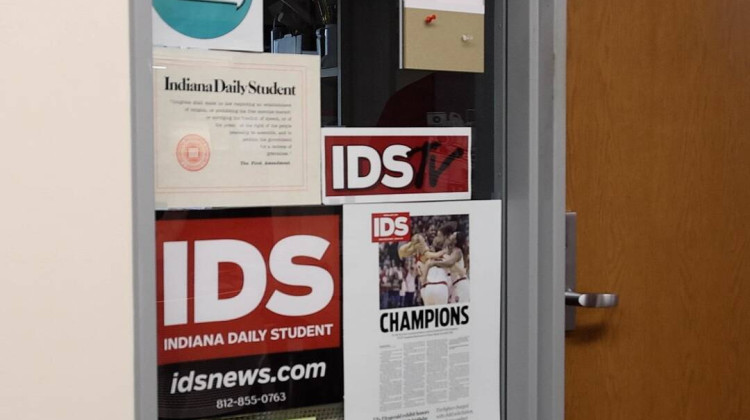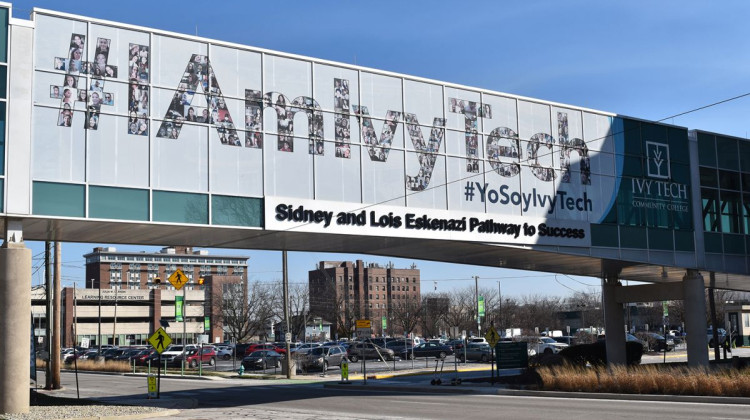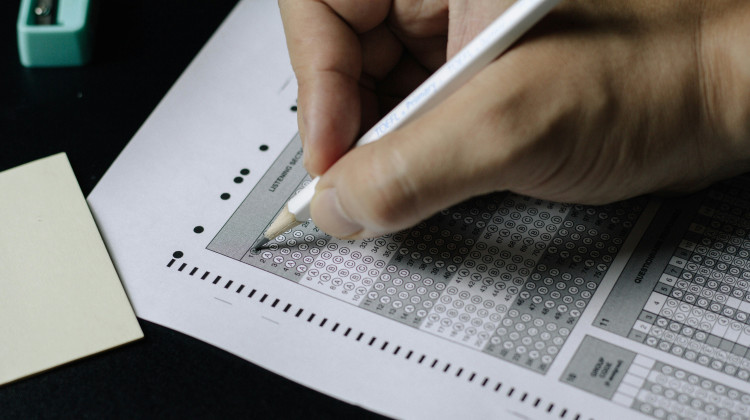
Media, faculty groups and free speech organizations have accused IU of censorship for ordering the IDS to remove news from a special print edition. But IU leaders have not publicly spoken about their position.
Devan Ridgway / WFIU/WTIU NewsWhen Indiana University announced it would stop printing the Indiana Daily Student after former Director of Student Media Jim Rodenbush refused to remove all news from an upcoming special homecoming edition, student journalists and press organizations accused it of censorship.
But some legal experts say there's not enough information yet to make that call.
READ MORE: IU fires adviser of student media, stops printing Daily Student
Steve Sanders, a professor of law at IU and former IDS reporter, said if the university were punishing the IDS or trying to quash specific stories, the paper would have a strong First Amendment case. But if both sides understood that the homecoming special was a marketing vehicle, that looks more like a business dispute.
But without more information about that arrangement, he doesn't feel comfortable drawing a conclusion.
"It's difficult I think for a newsroom to assert First Amendment rights against its publisher, even when that publisher is essentially a government agency," Sanders said. "I just think there are too many unknowns here."
Sanders added that the paper's financial relationship with the university also affects its leverage. While the IDS was previously self-supporting from ad revenue, IU paid off nearly $1 million in debt when advertisers dried up. That makes the newspaper more financially dependent on the university than ever before.
"The university has assumed essentially control and responsibility for the business operations of the paper, while claiming to be committed to editorial independence," Sanders said. "But the line between those two has always been messy."
He added, "There's no direct evidence that anyone can point to, I think, that the university is punishing the IDS for any of the aggressive reporting it's done."
But the Foundation for Individual Rights and Expression – a free speech organization that recently ranked IU as the worst public university for First Amendment Rights – said it's censorship regardless of whether the decision was financial.
Student Press Program Officer Dominic Coletti said he won't rule out retribution as a factor either.
"The university ordered the advisor to control the content of the paper. That's a problem regardless of motive," he said. "The university's motive might not be retaliatory, but that would still be a problem."
Coletti said if the university had been clear about its changing relationship with the IDS, things would be murkier.
"They could have said, 'Look, we are only going to fund you if X, Y or Z.' The problem is they didn't do that. As far as we can tell, the charter is still valid," he said. "The charter still establishes the IDS as an editorially independent paper."
FIRE is also organizing a campaign to pressure the university to offer Rodenbush his job back. The dean of the media school fired Rodenbush the same day IU announced printing would end.
IU says ending print will help prepare students for digital careers, but it did not comment on the timing of the decision.
Mike Arnold will be assisting in the interim in his role as executive director of public media.
 DONATE
DONATE






 Support WFYI. We can't do it without you.
Support WFYI. We can't do it without you.